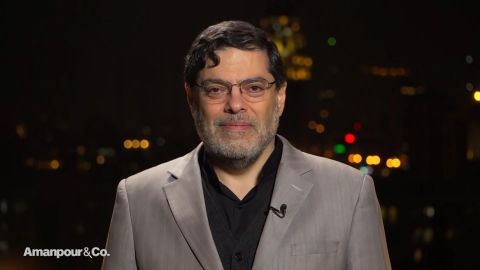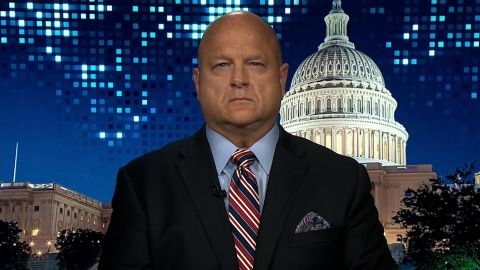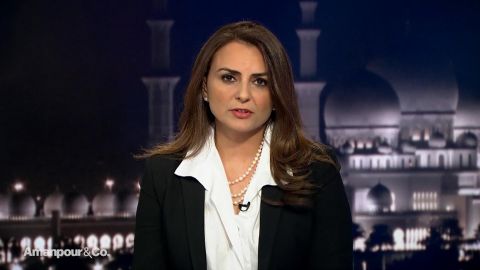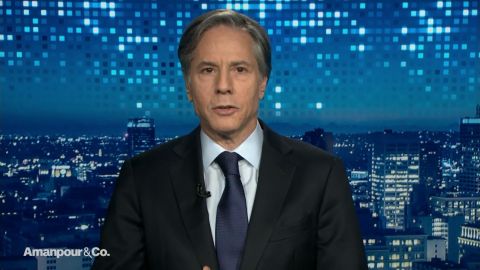Read Transcript EXPAND
CHRISTIANE AMANPOUR: Do you see, does your region see a strategy emerging from the United States on Iran?
MINA AL-ORAIBI, EDITOR IN CHIEF, “THE NATIONAL”: Well, this administration’s been quite clear that it sees Iran’s activities in the region, Iran’s proxies in the region as problematic. And that’s a view shared by many Arab states, not only the Gulf states, but other Arab states here. So this idea of Iran feeling that it can have its proxies, militias, whether it’s in Iraq, in Lebanon, in Syria, able to roam about freely — Qasem Soleimani used to roam Iraq and Syria quite freely. The Iranian foreign minister clearly used to say that, on issues like Yemen and Iraq and Syria, he has no real role. It’s all with the military command in Iran, and, namely, with Qasem Soleimani. And that’s been problematic. The nuclear deal is spoken quite often about in Europe in the U.S., but really, for people in the region here, nuclear arms are definitely a concern, but so our proxies and this asymmetrical warfare that’s really troubled the region for a couple of decades now. And so, from that point of view, while the Trump administration has certain issues and problems that people are concerned about, in reality, the fact that they raised the Iranian interference, if not proxy wars, that are going on in the region is something that quite a few Arabs agree with.
AMANPOUR: Clearly, also, we know that your leadership in the UAE, also in Saudi Arabia, have been calling for de-escalation for every — for all sorts of reasons. They don’t want to see another war on their doorsteps or on their coastlines. What do you make of President Trump’s reaction today, and of Iran’s retaliation that seemed to — they seemed to have come to a sort of a de facto agreement that that’s it, for the moment at least?
AL-ORAIBI: For this round, hopefully, in terms of military escalation, that’s where it’s come from. I’m originally from Iraq. And for many Iraqis, there is concern that this war is playing out in Iraq. And the attacks yesterday that happened, the Ayn al Asad Air Base is an Iraqi base. Yes, there are American troops there. There are foreign troops there. But it’s an Iraq air base. But the Gulf here, the UAE, Saudi Arabia, you’re right, have been calling for de-escalation. Let’s not forget that there’s quite strong evidence that Iran was behind the attack on Aramco, for example, September, and that was a huge blow, really, for stability, regional stability. And yet still Saudi Arabia, the UAE and other Arab countries said, let’s calm down. Let’s not escalate the situation, because, definitely, one thing this region doesn’t need is another war.
About This Episode EXPAND
In the wake of Iranian attacks on U.S. bases in Iraq, Christiane gains insight on the current geopolitical state of affairs from David Urban, Mohammad Marandi, Antony Blinken and Mina Al-Oraibi.
LEARN MORE



